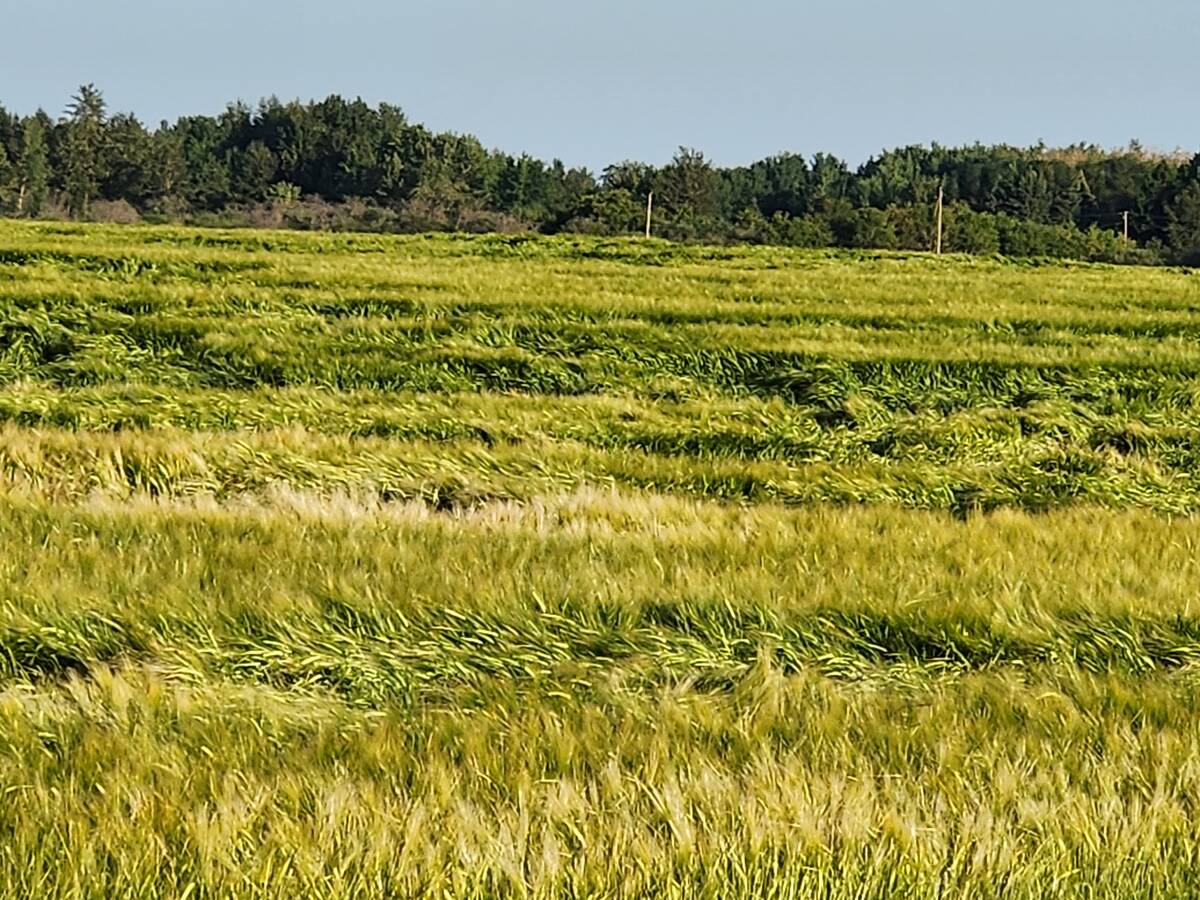“More than anything it just seemed to us to be the right thing to do.”
– Wade Sobkowich
The almost $60 million western grain farmers overpaid the railways last year should be returned to farmers, says the Western Grain Elevator Association, which represents Canada’s main grain companies.
The association said the overpayments, which amount to $2.23 per tonne, could be deducted from the current year’s rail charges.
“More than anything it just seemed to us to be the right thing to do,” Western Grain Elevator Association (WGEA) executive director Wade Sobkowich said in an interview Monday.
Read Also

Cereal lodging isn’t just a nitrogen problem
Lack of copper in the soil can also lead wheat and other cereal crops to lodge during wet seasons on the Canadian Prairies.
“It would add to the health of the grain industry. Any time we add to the health of farmers we help grain companies be more viable, period. So it’s a bit of a self-interest in an indirect way.”
To make it happen the federal government would have to amend regulations under the Canada Transportation Act. The law now requires railway earnings from grain that exceed the cap set annually by the Canadian
Transportation agency, plus penalties, to be paid to the Western Grains Research Foundation (WGRF), which will use the money for research and benefit of farmers.
When the regulations were implemented the expectation was any excess revenues would be small and the costs of figuring out how to repay farmers individually would be prohibitive. But the overage in 2007-08 is so high it might be worth the cost, Sobkowich said. The Western Grains Research Foundation is a worthy organization, he said, adding the WGEA wants it to still get the $9 million in penalties assessed against the railways.
Sobkowich said it can be done if there’s the political will. Elevator companies have a record of the volume of grains and oilseeds shipped, and in the case of Canadian Wheat Board grains, the exact freight deduct ion. That doesn’t exist with non-board grains. Freight costs are buried in the basis and therefore invisible. But Sobkowich said a formula could be calculated to pro-rate a freight rebate for non-board grains.
Another option, Sobkowich said, is to lower this crop year’s revenue cap by the amount owned to farmers. Those who shipped grain last year, but don’t this year, wouldn’t benefit, but the administration costs would be lower than the first alternative.
Last crop year the federal government lowered the railway revenue cap to reflect a drop in the allowance for maintaining the government’s hopper cars. It appears the railways didn’t adjust their freight rates accordingly, resulting in an unprecedented excess in revenue.
The railways are legally obliged to remit the excess, plus penalties (see related story page 1), to the WGRF by month’s end, although the railways have the option to appeal. WGRF has not yet been contacted for comment.















